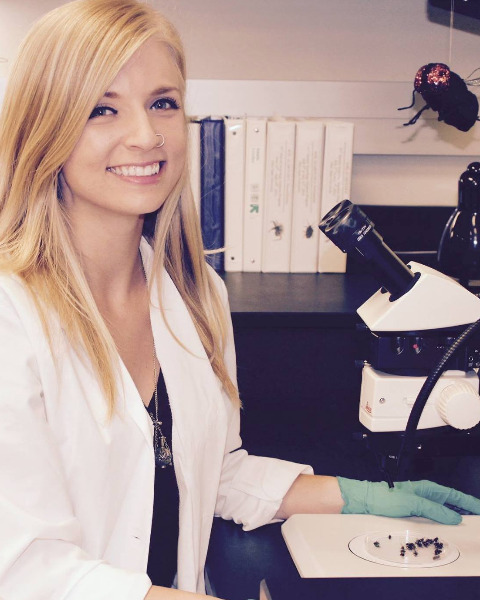Member Symposium
Medical, Urban, and Veterinary Entomology
Systematics, Evolution, and Biodiversity
Forensic Entomology Beyond the Crime Scene: Using Arthropods as Environmental Detectives
Ethical considerations for implementing environmental forensic entomology methods in casework
Wednesday, November 12, 2025
3:40 PM - 3:52 PM Pacific
Location: Oregon Convention Center, C120-122, OCC

Charity Grace Owings (she/her/hers)
Research Assistant Professor
University of Tennessee
Knoxville, Tennessee
Presenting Author(s)
Environmental forensic entomology is an emerging sub-discipline of forensic entomology in which carrion arthropods are used as non-invasive collectors of biological and chemical evidence. Though this field has yielded promising and exciting results so far, the use and analyses of sensitive information (e.g., human genetic material) from wild arthropods could raise ethical concerns about privacy and informed consent. Furthermore, the actual implementation of environmental forensic entomology methods to forensic casework remains unclear. To be admissible under the Daubert standard, the methodology employed by an expert witness must be testable, repeatable, have a known error rate, be subjected to peer review and publication, and must be generally accepted by the scientific community. Therefore, each of these components used in the context of environmental forensic entomology must be thoroughly investigated before being admissible under Daubert. Practitioners must also agree on standardized procedures (e.g., OSAC) for evidence collection, analysis, and interpretation to minimize error associated with methods used in casework. Additionally, researchers and practitioners of this field must think critically about the risk of misinterpretation and misuse of environmental forensic entomology methods in casework and be transparent about these possibilities and their implications to the justice system. This presentation will provide an overview of the challenges and ethical problems to consider as the field of environmental forensic entomology continues to evolve.
.png)
